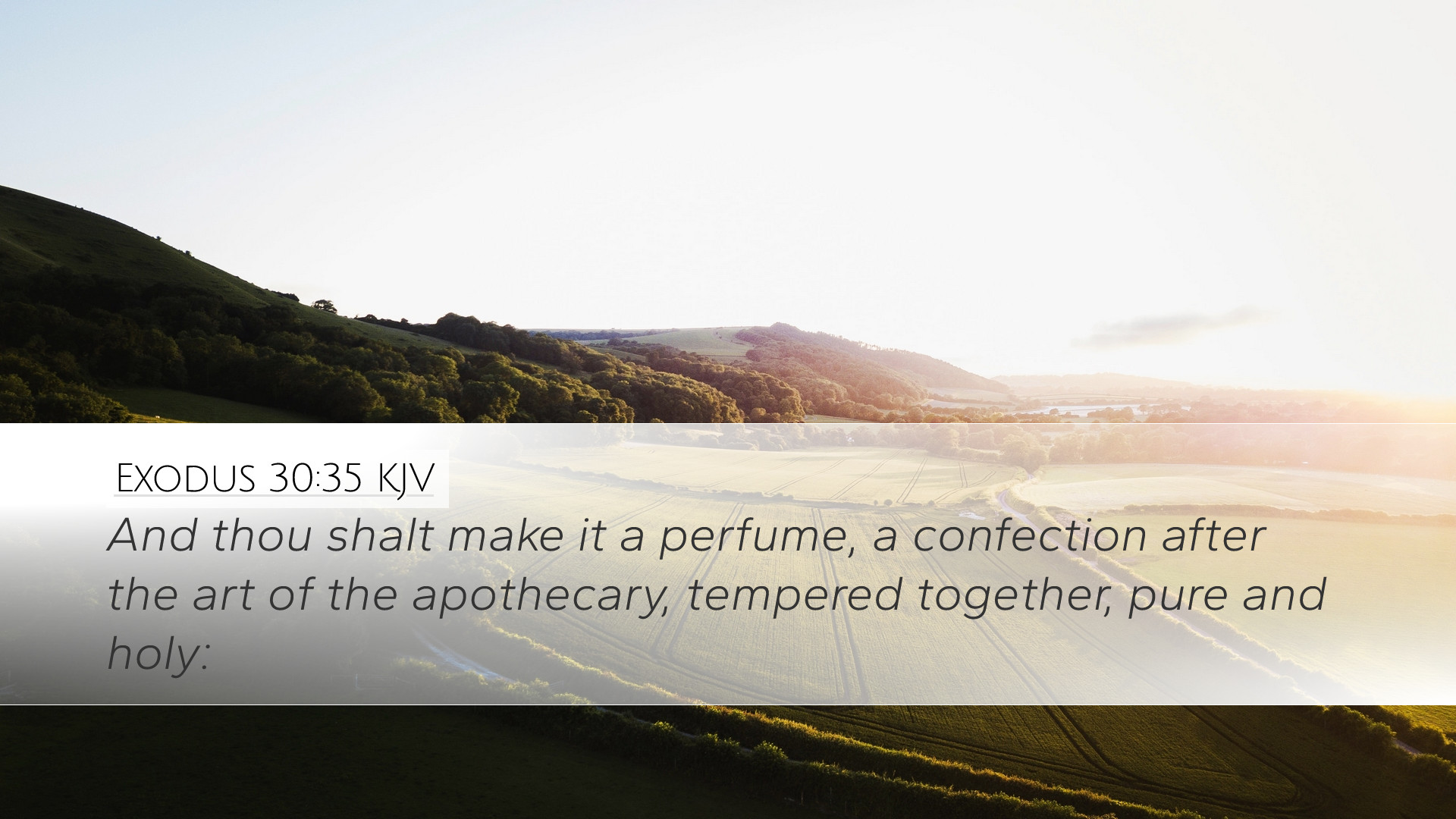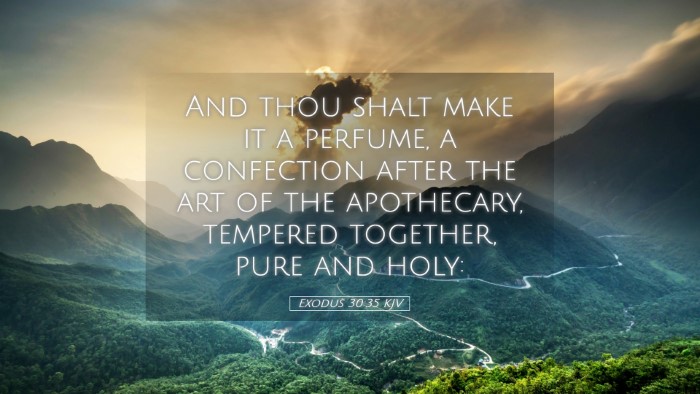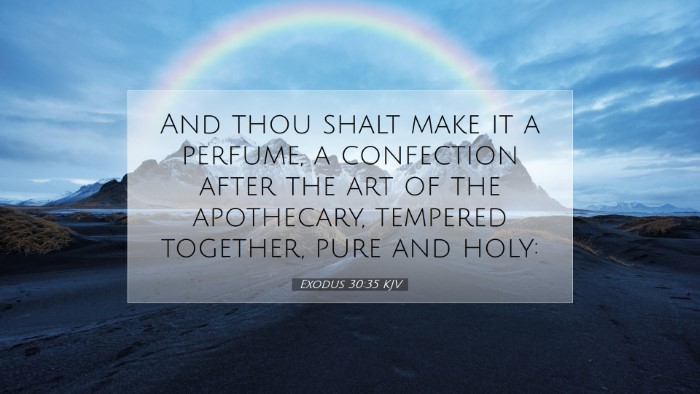Commentary on Exodus 30:35
Exodus 30:35 (ESV): “And with it you shall make sacred anointing oil, blended as by the perfumer; it shall be a holy anointing oil.”
Introduction
This verse forms a critical junction in the discussion of the tabernacle's consecration and the priesthood's sanctification. The anointing oil is prescribed as a special mixture, designed not only for practical purposes but also imbued with spiritual significance.
Insights from Matthew Henry
According to Matthew Henry’s commentary, the anointing oil represents the Holy Spirit. Its preparation requires a blend of "spices," indicating that a variety of gifts and graces are necessary in the life of a believer. Henry also highlights that the oil's sacredness underscores the need for purity and distinctiveness in worship and service.
- Spiritual Significance: The oil symbolizes divine empowerment.
- Consecration: Highlights God's desire that His people be set apart for holy purposes.
Insights from Albert Barnes
Albert Barnes emphasizes the meticulous nature of the oil's composition. He points out that while the world may provide various substitutes, the unique formulation commanded by God is intended for a sacred purpose. Barnes interprets this as a metaphor for the believer's life: only when we are filled with the Holy Spirit can we fulfill our calling.
- God’s Specification: The importance of adhering to divine instruction in worship practices.
- Symbol of Authority: The anointing oil serves as a sign of God's authority upon those He appoints for service.
Insights from Adam Clarke
Adam Clarke elaborates on the practical aspects of the oil’s preparation. He notes that the blending of spices requires skill analogous to that of a perfumer. This skill reflects the careful attention and understanding needed in spiritual matters. Clarke's observations suggest that God desires not only service but excellence in service.
- Craftsmanship in Worship: The artistry involved in the anointing oil is indicative of the thoughtfulness required when approaching sacred duties.
- Holiness in Representation: The anointing oil as a means for consecrating objects and people highlights the seriousness with which holiness is treated in Scripture.
Theological Implications
This verse invites deep theological reflection regarding the nature of holiness. The careful preparation of the anointing oil serves as a reminder that God is both transcendent and immanent. His requirements for worship reflect His glorious nature and also signify His closeness to those who serve Him.
- Holiness of God: Exodus 30:35 emphasizes the purity required for individuals and instruments to be used in God’s service.
- Spiritual Consecration: The practice of anointing is not just for physical objects but also points to the anointing of believers through the Holy Spirit.
Practical Applications for Believers
Drawing from these insights, there are relevant applications for believers today:
- Call to Holiness: Believers are called to live lives marked by holiness, reflecting the nature of God in a secular world.
- Empowerment for Service: Just as the priests were anointed, Christians today need the Spirit's anointing to fulfill their God-given calling effectively.
- Dedication in Service: The process of crafting holy anointing oil mirrors the dedication that believers should have in their service to God.
Conclusion
Exodus 30:35 serves as an essential passage that synthesizes elements of worship, consecration, and the nature of the Holy Spirit's work in believers. Understanding this verse through the lenses of respected commentaries provides a richer comprehension that can inform and inspire pastors, students, and theologians alike.


